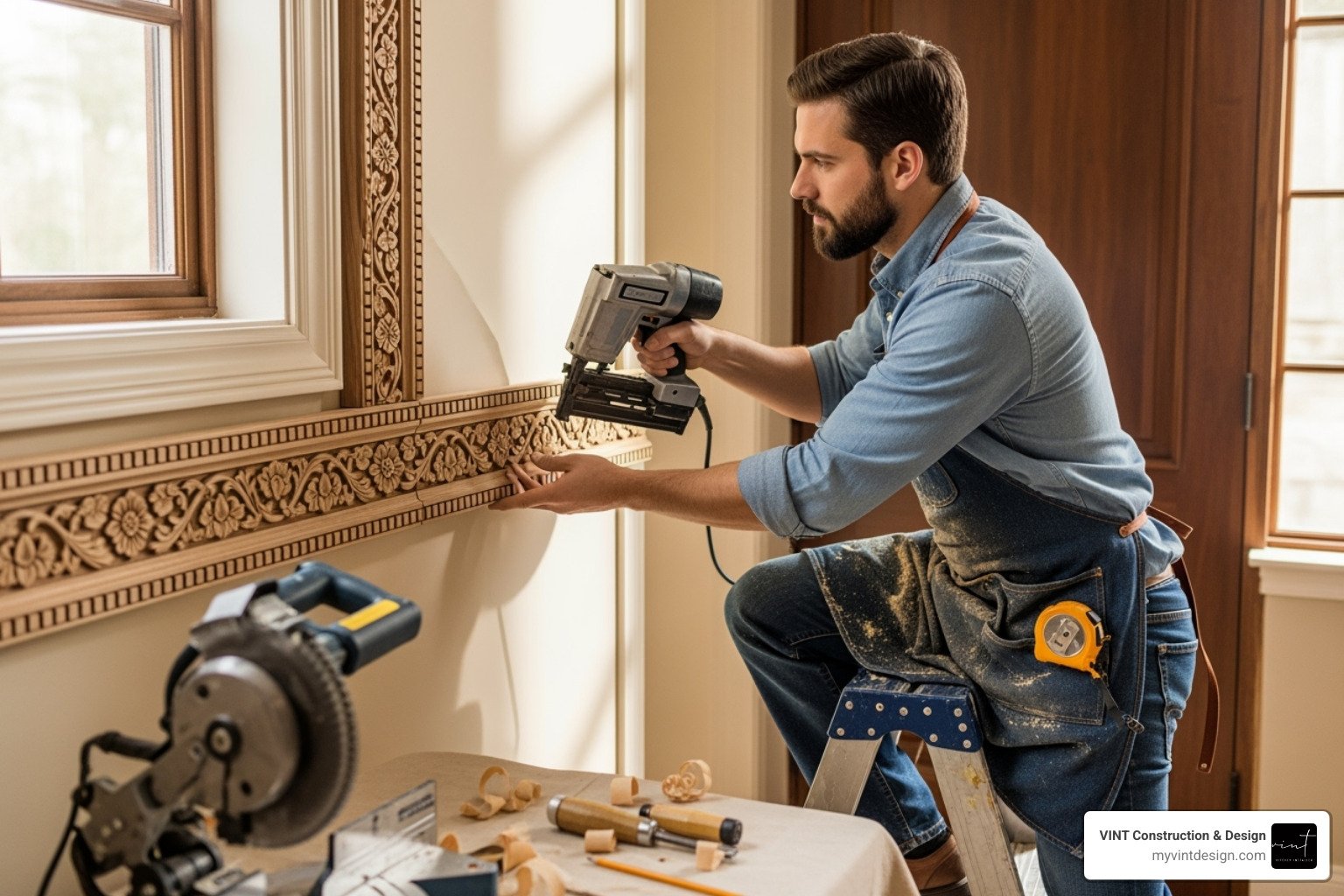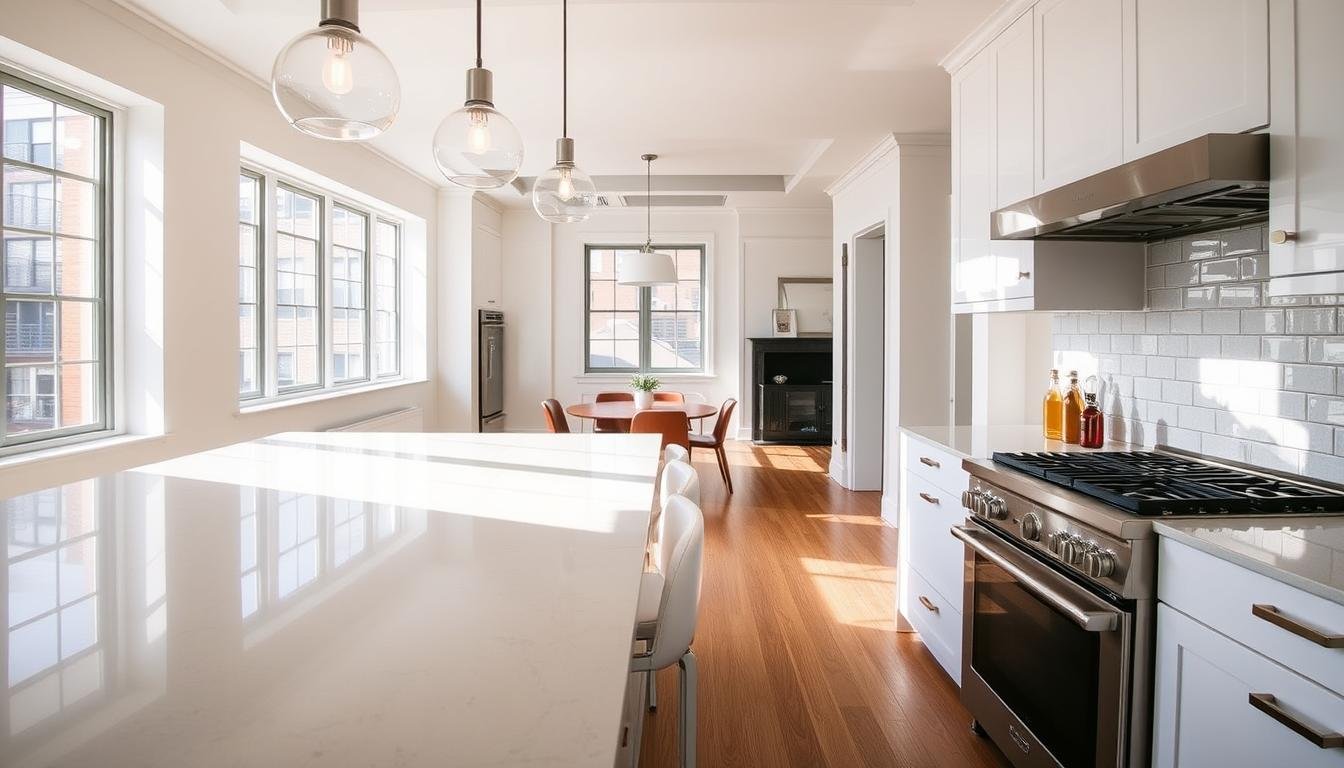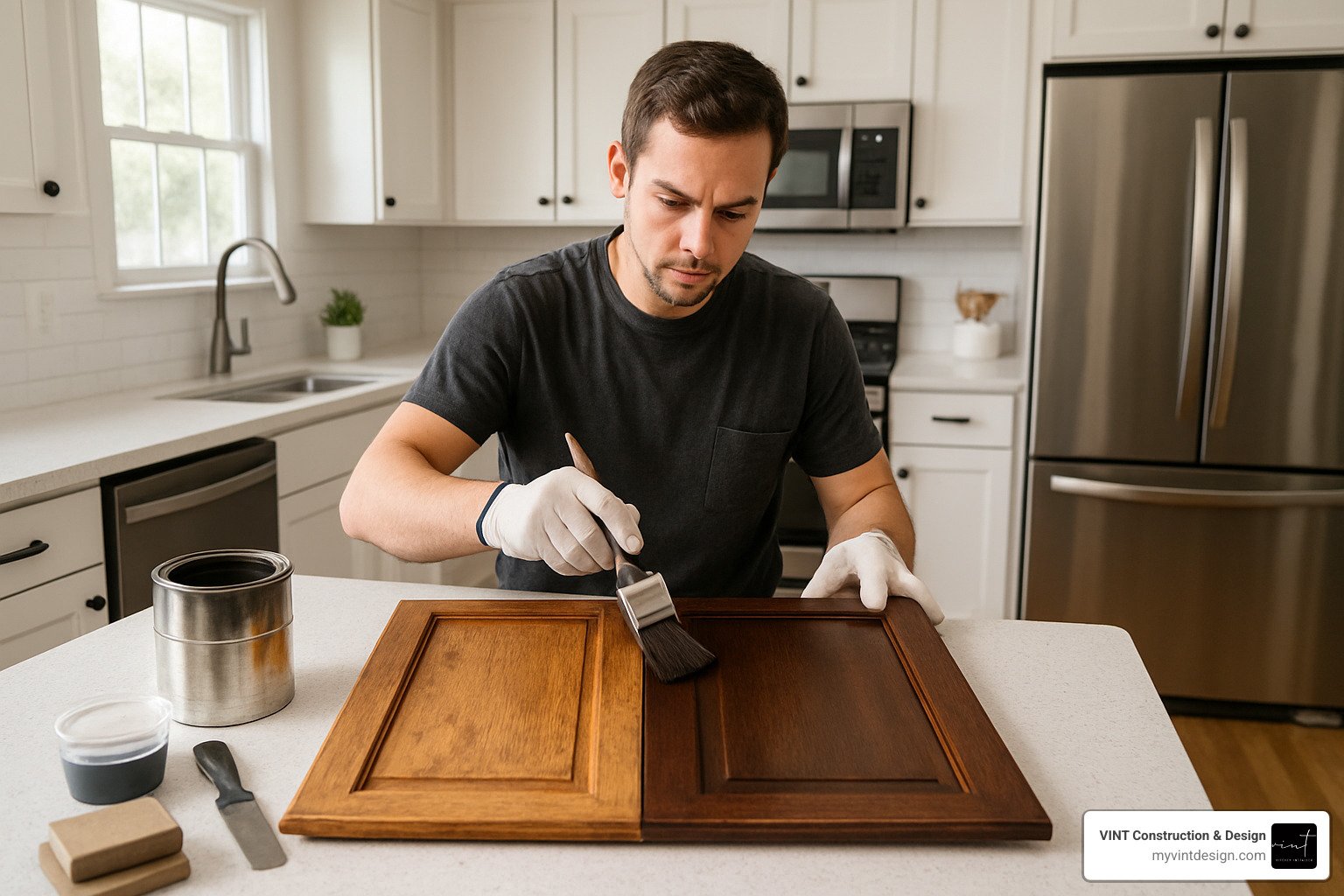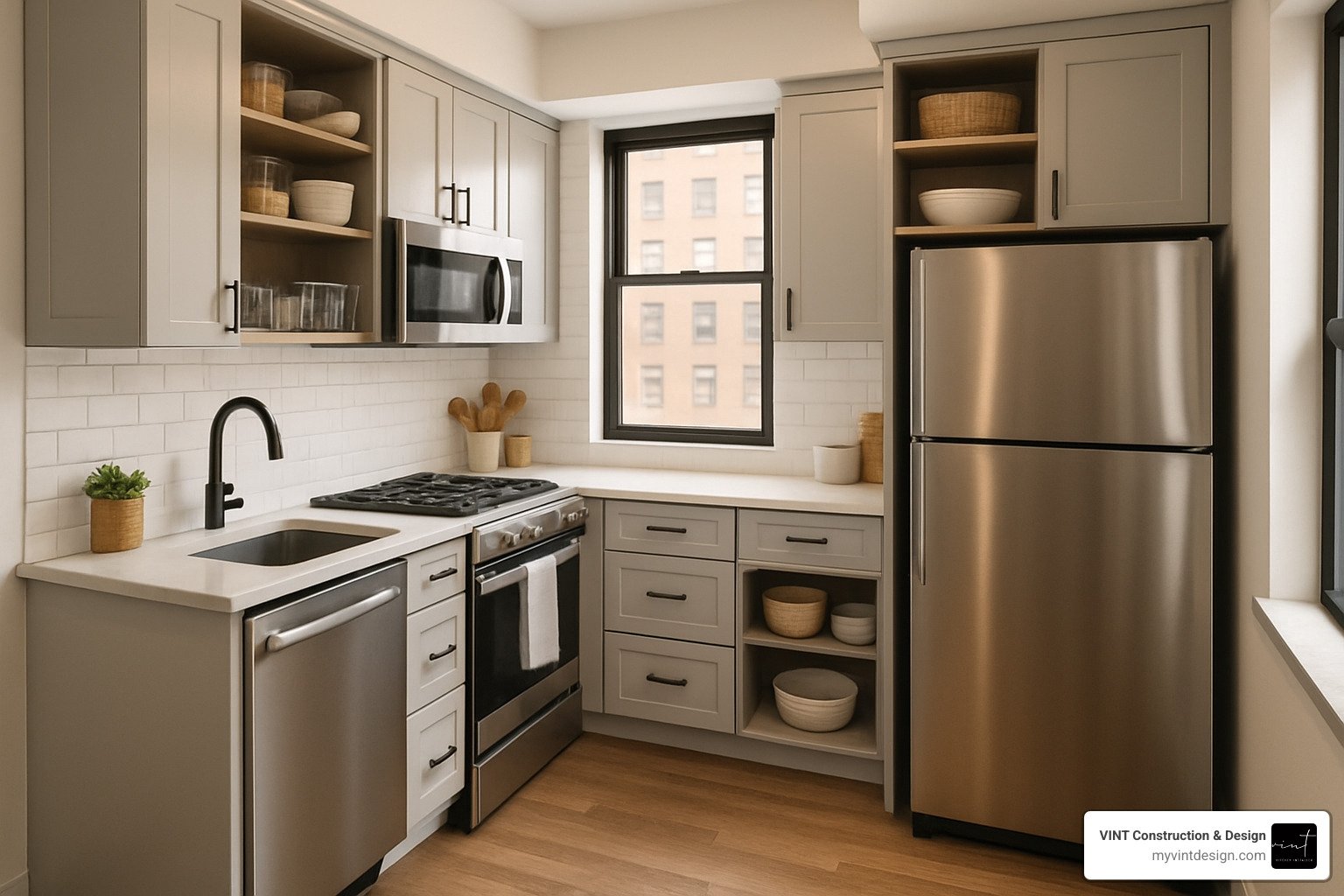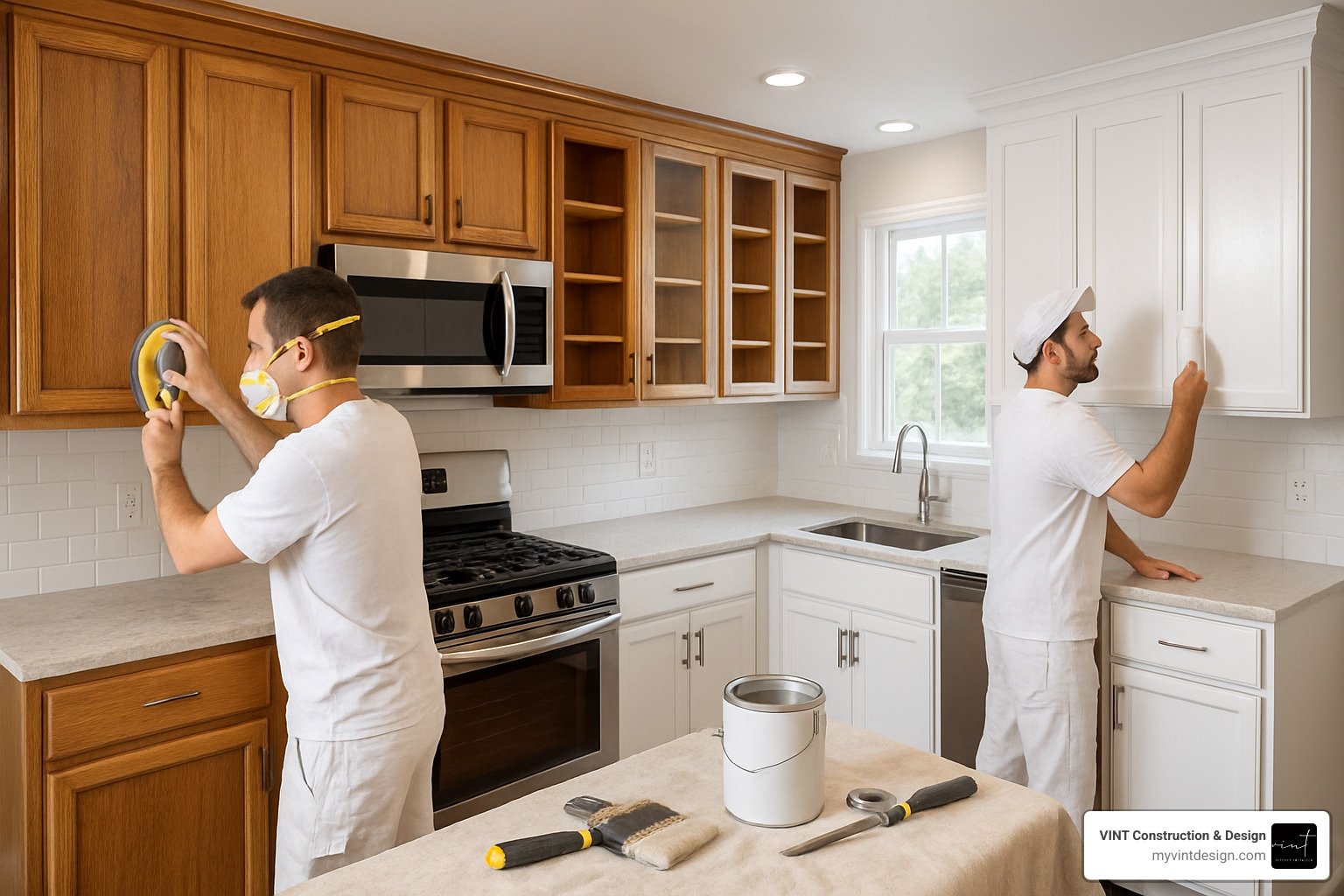Why Choosing the Right Home Improvement Contractor Matters

Home improvement contractors are licensed professionals who manage renovation projects from start to finish, coordinating everything from permits to final inspections. Here’s what you need to know:
Quick Contractor Selection Guide:
- License & Insurance: Verify both through state registries
- References: Call at least 3 recent clients
- Written Estimates: Get detailed quotes from 3+ contractors
- Contract Terms: Include timeline, materials, and change order process
- Red Flags: Avoid door-to-door solicitors, cash-only requests, or no local address
Your kitchen remodel shouldn’t feel like a gamble. Yet many homeowners dive into major renovations without properly vetting their contractors – leading to cost overruns, delays, and subpar work.
The stakes are higher than ever. The median construction cost has jumped from $55.18 per square foot in 1992 to $155 in 2022, according to the National Association of Home Builders. With general contractors in markets like Halifax charging 10-20% markup on total project costs, a poor hiring decision can cost you thousands.
DIY might seem tempting, but major renovations require coordinated trades, permits, and code compliance. As one industry expert notes: “If you want something done right, do it yourself” doesn’t always ring true, and some renovation projects are best left to professionals.”
The good news? A systematic approach to contractor selection eliminates most risks. From verifying licenses to checking references, the right vetting process connects you with skilled professionals who deliver on time and on budget.
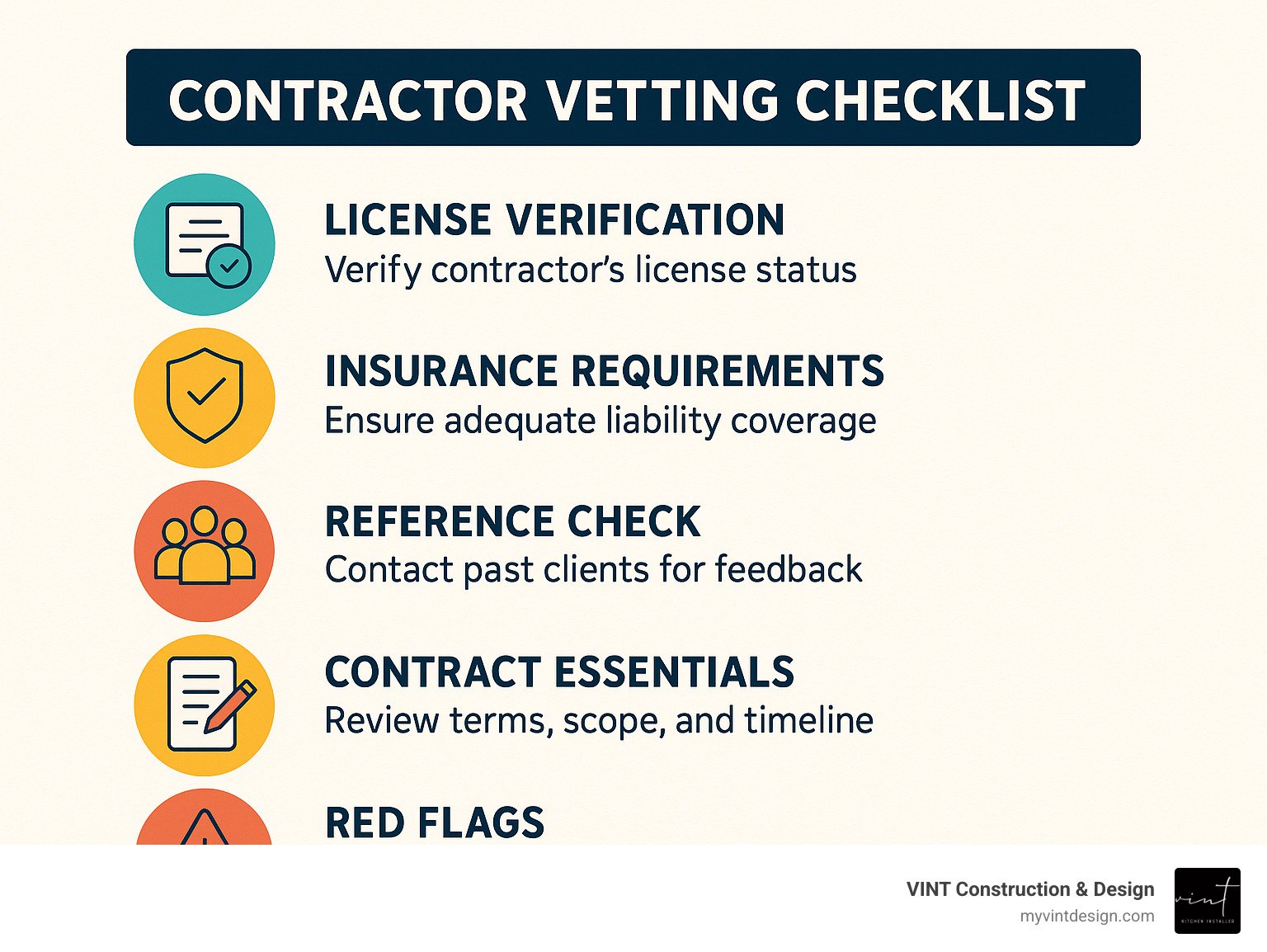
10 Essential Steps to Hiring Home Improvement Contractors
Finding the right contractor doesn’t have to feel like searching for a needle in a haystack. With a clear roadmap and some patience, you can connect with skilled professionals who’ll treat your home with the care it deserves.
Let’s be honest – the DIY route looks tempting when you’re scrolling through social media makeovers. But here’s the reality check: professional contractors finish kitchen remodels in 3-5 months while DIY projects often drag on for 6-12 months (and that’s if everything goes smoothly). When it comes to structural changes, the stakes get even higher – safety risks and code violations can turn your dream renovation into a nightmare.
| DIY vs Professional | DIY Outcome | Professional Outcome |
|---|---|---|
| Kitchen Remodel | 6-12 months, permit issues | 3-5 months, code compliant |
| Bathroom Renovation | Limited trade knowledge | Coordinated plumbing/electrical |
| Structural Changes | Safety risks, code violations | Engineered solutions |
| Permit Applications | Delays, rejections | Streamlined approval |
| Cost Overruns | 20-40% over budget | 10-15% with change orders |
The numbers tell the story. While DIY projects typically run 20-40% over budget due to mistakes and learning curves, professional contractors keep overruns to 10-15% even with change orders. That’s the difference between chaos and control.
What Do Home Improvement Contractors Do?
Think of home improvement contractors as the conductors of your renovation orchestra. They don’t play every instrument, but they make sure everyone plays in perfect harmony. Without them, you’d have plumbers showing up when electricians need to work, materials arriving at the wrong time, and inspectors finding code violations that delay everything.
Project planning is where contractors earn their keep. They develop realistic timelines, order materials before you run out, and schedule trades so work flows smoothly. No more waiting three weeks for the electrician while your kitchen sits half-finished.
Permit management might sound boring, but it’s crucial. Contractors know which permits you need, how to get them approved quickly, and when to schedule inspections. They speak the language of building departments – something that can save you months of back-and-forth.
Quality control means having someone who knows what good work looks like. They catch problems before they become expensive mistakes and ensure everything meets code requirements. When you’re paying for a renovation, you want it done right the first time.
Subcontractor coordination is perhaps the most valuable service. As one industry expert puts it: “Contractors are only as good as their subcontractors.” A good contractor has trusted relationships with skilled plumbers, electricians, and other specialists who show up on time and do quality work.
Problem solving is inevitable during renovations. Contractors handle the “what if” scenarios that would leave most homeowners scratching their heads. When they find outdated wiring or plumbing issues, they know how to adapt without derailing your entire project.
For specialized work like drywall and painting, contractors ensure proper surface preparation and use appropriate materials for professional-grade finishes that DIY efforts often can’t match.
Vetting Home Improvement Contractors: Licenses, Insurance & Reputation
License verification should be your first stop – no exceptions. Every legitimate contractor carries proper licensing for their trade and location. In New York and New Jersey, checking state registries takes five minutes but can save you from months of headaches.
State licenses prove contractors have met minimum requirements for their trade. Business licenses confirm they’re legally operating in your area. Insurance certificates protect you from liability if accidents happen on your property. Bonding information gives you recourse if work isn’t completed properly.
Insurance isn’t negotiable – it’s your safety net. Contractor insurance protects homeowners from liability if incidents occur on site. Always request current certificates and verify coverage directly with the insurance company. A quick phone call now beats a lawsuit later.
Reputation research goes deeper than star ratings. While Google reviews and online feedback provide valuable insights, they shouldn’t be your only source. Smart homeowners dig deeper.
Reference verification means actually calling recent clients. Ask about quality, timeliness, and communication. Were there surprises? How did the contractor handle problems? Would they hire them again? These conversations reveal more than any online review.
Portfolio visits let you see work quality firsthand. Photos can be misleading, but standing in a completed kitchen tells the real story. For complex projects like kitchen remodeling, seeing similar completed projects helps you assess whether the contractor has relevant experience.
Better Business Bureau searches reveal complaint patterns. One complaint might be an isolated incident, but multiple complaints suggest deeper issues. Pay attention to how contractors respond to complaints – it shows their professionalism.

Smart Pricing & Contracts: From Estimates to Change Orders
Understanding contractor pricing prevents sticker shock and helps you budget realistically. General contractors typically charge 10-20% markup on total project costs, but this varies by region and complexity. In markets like New York and New Jersey, expect the higher end of this range.
Materials typically eat up 40-50% of your budget, while labor accounts for 25-35%. Contractor markup of 10-20% covers management, profit, and overhead. Permits and fees add another 1-3%, and smart homeowners set aside 10-15% contingency for unexpected issues.
Fixed-price contracts give you cost certainty – the total is agreed upfront, and contractors absorb overruns. Cost-plus contracts offer more transparency since you pay actual costs plus a contractor fee, but they carry higher risk if costs spiral.
Material allowances deserve special attention. These budget estimates for fixtures, flooring, and appliances can make or break your budget. Understand what’s included and what happens if you fall in love with upgrades that exceed allowances.
Contract essentials protect both parties. Detailed scope of work with specific materials and brands prevents confusion. Timeline with milestones keeps projects on track, while penalty clauses give teeth to deadlines. Change order processes with written approval requirements prevent scope creep from destroying your budget.
Payment schedules should never require large upfront payments. Legitimate contractors typically request 10-15% down, with remaining payments tied to project milestones. Lien waiver processes protect your property from subcontractor claims. Warranty terms for materials and workmanship give you recourse if problems arise later.
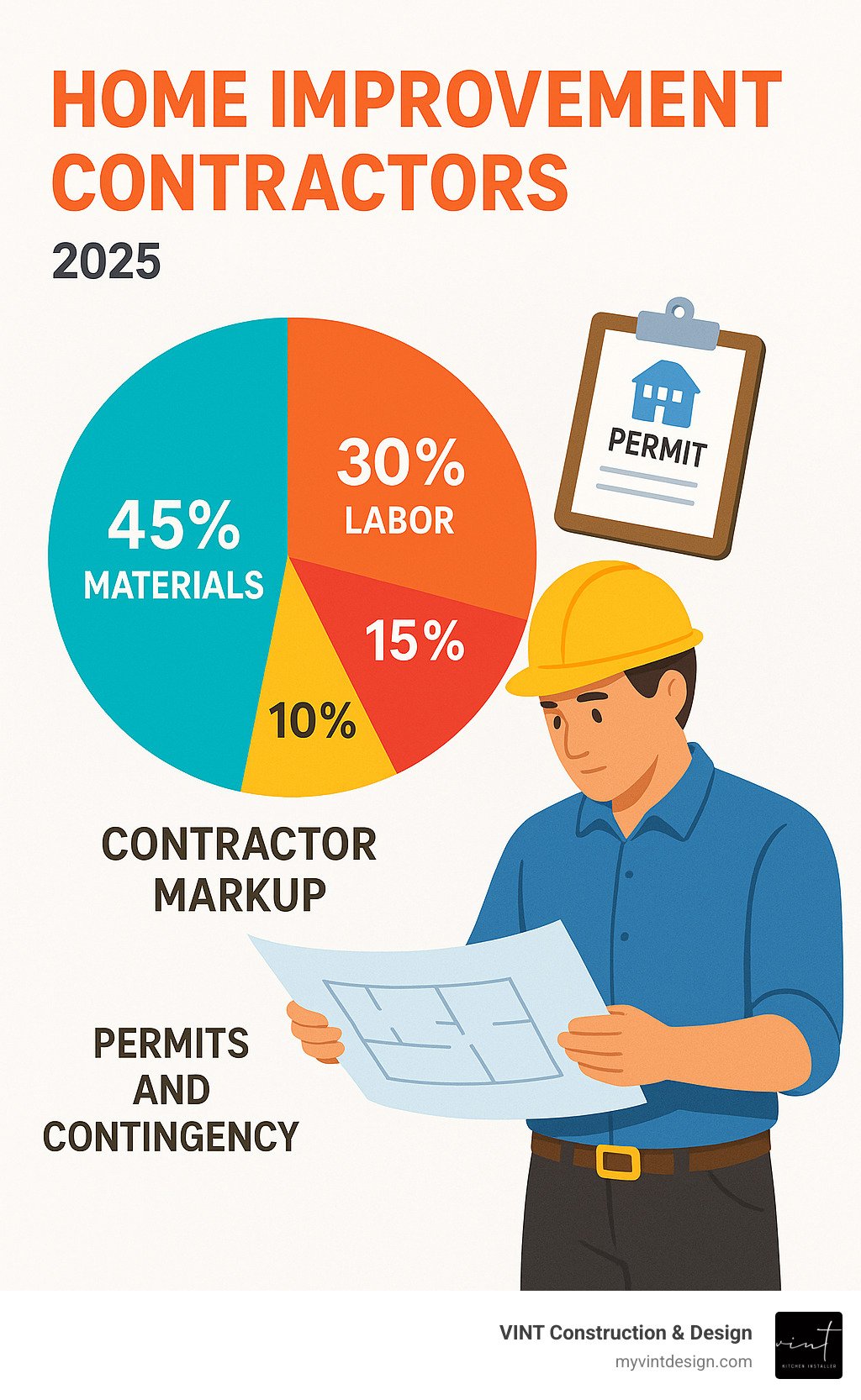
Red Flags, Pitfalls & Dispute Resolution
Recognizing red flags early can save you thousands of dollars and months of frustration. Trust your instincts – if something feels off, it probably is.
Door-to-door solicitation tops the warning list. Legitimate contractors don’t need to knock on doors looking for work. Cash-only payments or requests for full payment upfront signal trouble. No local address or temporary business setups suggest fly-by-night operations.
Verbal estimates without detailed written proposals show poor planning. Professional contractors provide comprehensive breakdowns of materials, labor, and timelines. Unlicensed or uninsured operations put you at legal and financial risk. Significantly low bids that seem too good to be true usually are.
Vague bids are another major concern. If a contractor can’t explain exactly what they’ll do and how much it’ll cost, they haven’t properly planned your project. No permit discussion for work that clearly requires permits shows either ignorance or corner-cutting.
Communication gaps often signal bigger problems. Contractors should respond to calls and emails promptly, provide regular updates, and address concerns professionally. As one expert notes: “Contractors expect detailed, specific instructions rather than open-ended requests.”
Handling disputes requires documentation and patience. Document everything – photos, emails, contracts, and receipts become crucial if problems arise. Address issues immediately before they compound. Follow contract procedures for dispute resolution rather than going straight to lawyers.
Mediation often resolves disputes faster and cheaper than legal action. Lien rights protect your property, but you need to understand the process. Project stress is normal during renovations, but professional contractors minimize it through clear communication and realistic expectations.
For budgeting guidance, scientific research on budgeting suggests setting aside 10-20% contingency for unexpected issues that commonly arise during renovations.

Conclusion & Next Steps
Finding the right home improvement contractor doesn’t have to feel like searching for a needle in a haystack. When you follow the steps we’ve outlined, you’re setting yourself up for a renovation experience that’s actually enjoyable – imagine that!
The truth is, most homeowners who end up with horror stories skipped the vetting process. They went with the first bid, ignored red flags, or chose based on price alone. You’re already ahead of the game by taking time to understand what makes a contractor worth hiring.
Professional contractors bring more than just tools to your project. They bring time savings through efficient project management, quality assurance from years of experience, and code compliance that protects your investment. Plus, there’s something priceless about having warranty protection and knowing someone else is handling all those moving parts.
Your next move is simple: define your project scope and budget range, then start researching contractors using our vetting checklist. Get detailed estimates from at least three qualified professionals, and don’t skip the reference calls – they’re worth their weight in gold.
When you’re reviewing contracts, the cheapest bid often costs the most in the long run. Focus on finding contractors who demonstrate professionalism, clear communication, and genuine expertise. Your home deserves skilled craftspeople who take pride in their work.
At VINT Construction & Design, we’ve seen how proper contractor selection transforms the renovation experience. Our expertise in kitchen remodeling and custom cabinetry across NYC and NJ combines rapid, code-compliant installations with the personalized service you deserve. We maintain proper licensing, comprehensive insurance, and a track record that speaks for itself.
The bottom line? Your dream home is absolutely achievable when you partner with the right professionals. The time you invest in proper vetting pays dividends in quality workmanship, on-time completion, and genuine peace of mind.
Ready to start your renovation journey with confidence? Contact us today to discuss your project and experience what happens when you choose the right contractor from the start.




